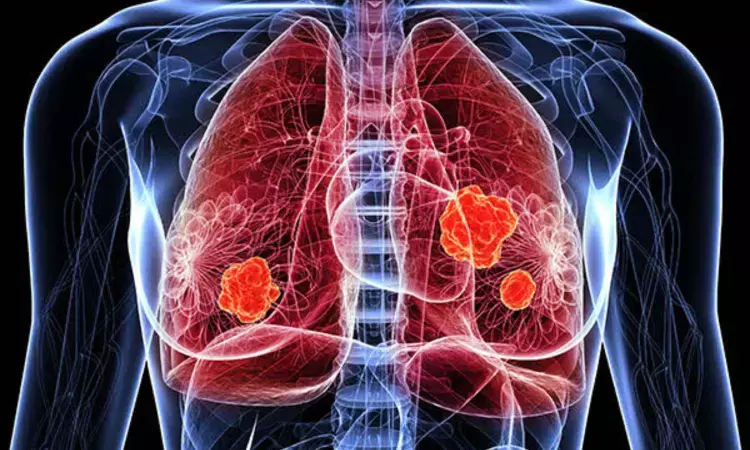- Home
- Medical news & Guidelines
- Anesthesiology
- Cardiology and CTVS
- Critical Care
- Dentistry
- Dermatology
- Diabetes and Endocrinology
- ENT
- Gastroenterology
- Medicine
- Nephrology
- Neurology
- Obstretics-Gynaecology
- Oncology
- Ophthalmology
- Orthopaedics
- Pediatrics-Neonatology
- Psychiatry
- Pulmonology
- Radiology
- Surgery
- Urology
- Laboratory Medicine
- Diet
- Nursing
- Paramedical
- Physiotherapy
- Health news
- Fact Check
- Bone Health Fact Check
- Brain Health Fact Check
- Cancer Related Fact Check
- Child Care Fact Check
- Dental and oral health fact check
- Diabetes and metabolic health fact check
- Diet and Nutrition Fact Check
- Eye and ENT Care Fact Check
- Fitness fact check
- Gut health fact check
- Heart health fact check
- Kidney health fact check
- Medical education fact check
- Men's health fact check
- Respiratory fact check
- Skin and hair care fact check
- Vaccine and Immunization fact check
- Women's health fact check
- AYUSH
- State News
- Andaman and Nicobar Islands
- Andhra Pradesh
- Arunachal Pradesh
- Assam
- Bihar
- Chandigarh
- Chattisgarh
- Dadra and Nagar Haveli
- Daman and Diu
- Delhi
- Goa
- Gujarat
- Haryana
- Himachal Pradesh
- Jammu & Kashmir
- Jharkhand
- Karnataka
- Kerala
- Ladakh
- Lakshadweep
- Madhya Pradesh
- Maharashtra
- Manipur
- Meghalaya
- Mizoram
- Nagaland
- Odisha
- Puducherry
- Punjab
- Rajasthan
- Sikkim
- Tamil Nadu
- Telangana
- Tripura
- Uttar Pradesh
- Uttrakhand
- West Bengal
- Medical Education
- Industry
Respiratory drive heterogeneity linked to systemic inflammation and vascular permeability in ARDS: Study

Recently published research paper investigates the correlation between systemic inflammation, vascular permeability markers, respiratory drive, and clinical outcomes in acute respiratory distress syndrome (ARDS). The study aims to understand how these factors contribute to the heterogeneity of respiratory drive in ARDS patients and their impact on clinical outcomes. The paper includes detailed methods and results obtained from a multicenter trial, where ARDS patients were enrolled and relevant data and plasma biomarkers were collected for the study.
Study Findings
The results indicate that 54.8% of the included ARDS patients had detectable respiratory drive, and markers of vascular permeability and systemic inflammation were found to be independently associated with higher respiratory drive, even after accounting for other factors such as acid–base state, oxygenation, respiratory mechanics, and sedation depth. The study observed that sedation depth was significantly associated with respiratory drive, and this relationship might be explained in part by differences in inflammation and vascular permeability.
It was found that patients with moderate respiratory drive had lower mortality compared to those with either lower or higher drive. The paper also delves into potential mechanisms by which vascular permeability and systemic inflammation influence ventilatory control, impacting respiratory drive in critical illness. However, the study acknowledges several limitations, including its observational nature, the complex and bidirectional relationship between inflammation, endothelial injury, and respiratory drive, and the absence of some relevant measurements such as pain.
Study Implications
Overall, the study provides valuable insights into the association between systemic inflammation, vascular permeability, and respiratory drive in ARDS patients. It highlights the potential impact of targeting specific levels of respiratory drive in clinical care and emphasizes the need for further research to understand the complex pathways modulating control of breathing, inflammation, and endothelial barrier function in critically ill patients.
This research contributes to the understanding of respiratory drive heterogeneity in ARDS patients and sheds light on the potential implications for clinical care and future research in this area.
Key Points
- The research paper aims to investigate the correlation between systemic inflammation, vascular permeability markers, respiratory drive, and clinical outcomes in acute respiratory distress syndrome (ARDS) patients. The study involved a multicenter trial with ARDS patients where relevant data and plasma biomarkers were collected.
- The findings indicate that markers of vascular permeability and systemic inflammation were independently associated with higher respiratory drive in ARDS patients, even after considering factors such as acid–base state, oxygenation, respiratory mechanics, and sedation depth. Patients with moderate respiratory drive had lower mortality compared to those with either lower or higher drive. The study also explores potential mechanisms by which vascular permeability and systemic inflammation influence ventilatory control in critical illness.
- The study suggests the importance of targeting specific levels of respiratory drive in clinical care and the need for further research to understand the complex pathways modulating control of breathing, inflammation, and endothelial barrier function in critically ill patients. It contributes valuable insights into respiratory drive heterogeneity in ARDS patients and highlights implications for clinical care and future research in this area.
Reference –
Baedorf-Kassis, E., Murn, M., Dzierba, A.L. et al. Respiratory drive heterogeneity associated with systemic inflammation and vascular permeability in acute respiratory distress syndrome. Crit Care 28, 136 (2024). https://doi.org/10.1186/s13054-024-04920-4
MBBS, MD (Anaesthesiology), FNB (Cardiac Anaesthesiology)
Dr Monish Raut is a practicing Cardiac Anesthesiologist. He completed his MBBS at Government Medical College, Nagpur, and pursued his MD in Anesthesiology at BJ Medical College, Pune. Further specializing in Cardiac Anesthesiology, Dr Raut earned his FNB in Cardiac Anesthesiology from Sir Ganga Ram Hospital, Delhi.


